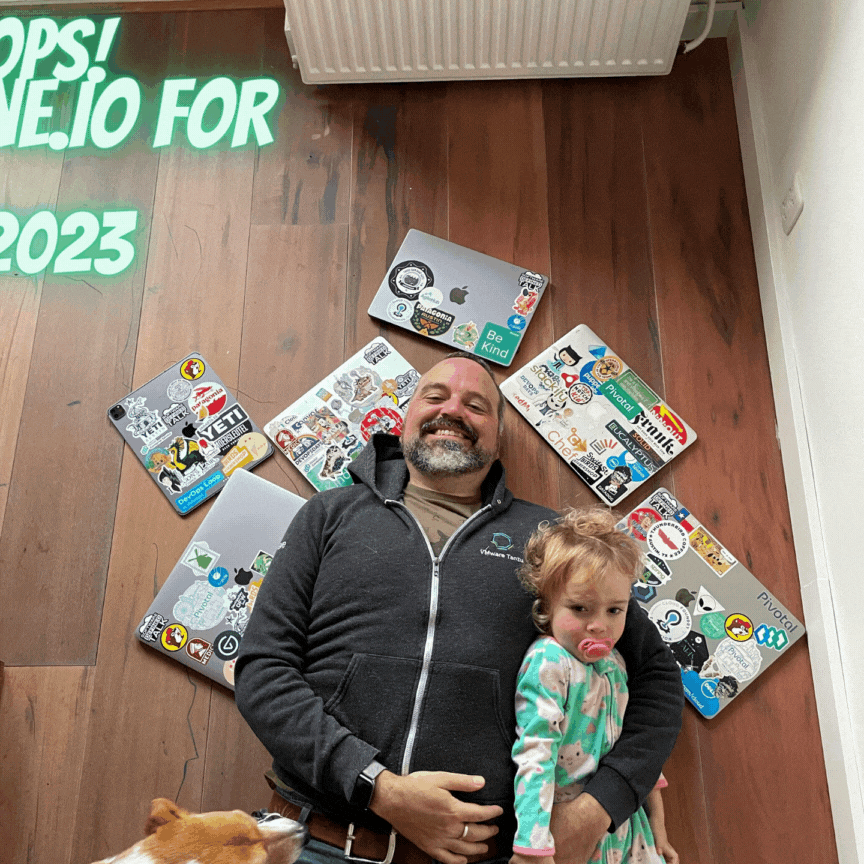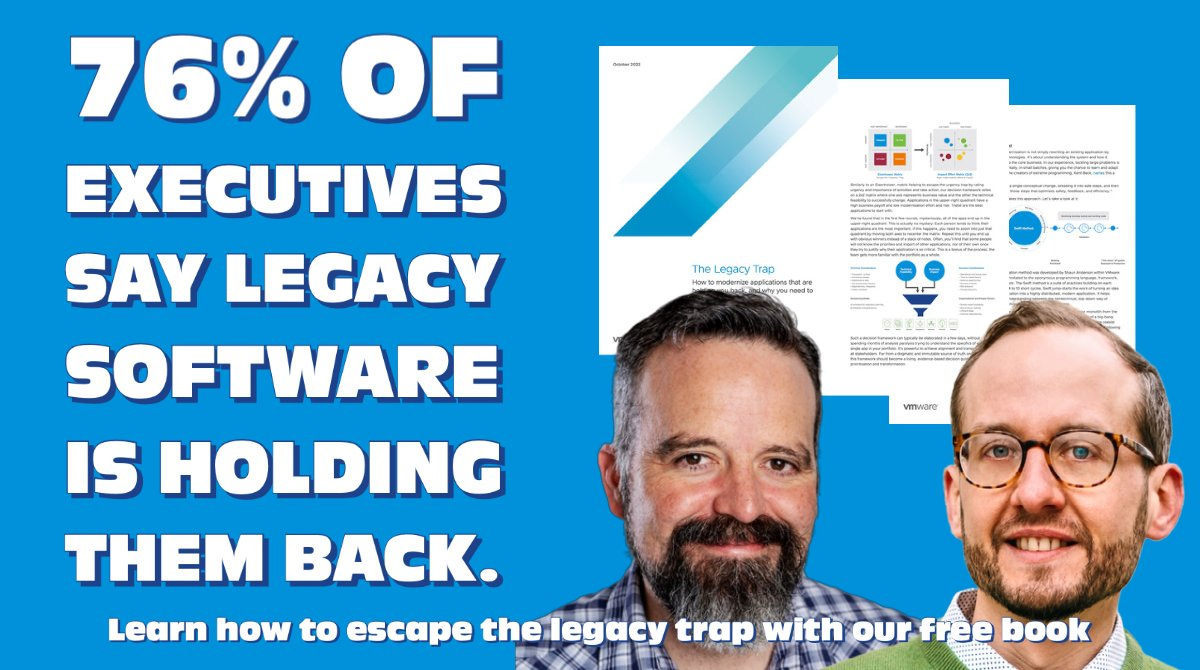Recent Dad Wisdom
When getting ready for school, you can’t use love as a distraction.
No one plans to have an accident, but you can plan to avoid one.
The earlier you learn to take care of yourself, the longer you’ll be taken care of.
AI Stuff

I’m now one of those people who spends too much time with AI imagine generation. It’s so much fun! If you’re interested in the ongoing stream of stuff, check out my flickr account. I’ve been using DALL-E, midjourney, and DiffusionBee. (Finally, a use for an old friend!) Also, you can check out my midjourney profile page - I’m not sure how to change the profile picture: I did not choose it, I have class!
☞ AI Replaces Bullshit Work That We Shouldn’t Be Doing In The First Place
As you recall from the past two episodes, my interest in this AI stuff is how I can use it as a tool, not a replacement. My main theory is that it’s great at removing toil - bullshit work that us humans have to do. This episode, here’s some discussion of that:
The Struggle To Be Human - “Anyone’s first draft is essentially a piece of bullshit; so is a free-wheeling conversation between collaborators.” - this is related to a point Ben Thompson makes with AI in self-driving cars. Sure, they crash sometimes, but people crash frequently as well. How often is the AI just as successful as the average success you get from humans? Humans have proven themselves to be full of bullshit and ignorance aplenty. We hold the AI to a higher standard.
“DoNotPay is building a chrome extension where you can specify something like “negotiate my Comcast bill down,” and it will use the Comcast online chat to lower your bill with GPT-3. Over time, Comcast will also use LLMs. So robots will just be negotiating with each other!” And a demo, from their CEO Joshua Browder
“as for homework, simply get the students to talk through their understanding of a topic. When I was in school, the only written tests that required me to write pages of prose were composition exercises; tests of subjects like history involved a verbal examination, in which the teacher would ask me a question and I would be expected to expound on the topic. This approach will remain proof against technological cheating for some while yet.” Information Push.
Making money off common sense - “There’s an important phenomenon at work here: many viral explainers communicate something that’s fairly common knowledge in an industry, but is suddenly relevant to the rest of the world. Being able to produce a timely explainer fast might require the ability to go much deeper on adjacent topics; it’s easier to talk about the basics with confidence and authority if you’ve moved well beyond them.” This is not about the AI, but about expert’s ability to write quick explainers when there’s eyeball buzz. If the AI is good at writing comment sense, then…see next!
Crack-Up Capitalism book review - Tyler asks ChatGPT to summarize Milton Friedman rather than write that summery in his one. Excellent use of the AI to do the toil of a quick blog post - research and summary of basics takes up time, even if you are and expert: let the AI do it so you can the imaginative part.
This doesn’t really tell you what exactly companies are using AI for beyond some vague categories, but it seems like it makes business sense. Predictably, the use cases are sort of boring shit: “the biggest reported revenue effects are found in marketing and sales, product and service development, and strategy and corporate finance, and respondents report the highest cost benefits from AI in supply chain management.” Again: the AI stuff is probably great at eliminating office-worker toil.
Theory: toil done by humans has a noticeable amount of failure, error rates. Not “high,” more than zero. This is the case with IT automation: “fat-fingering” and all that. So, if humans aren’t perfect at office-worker toil, the AI doesn’t need to be perfect either. It just needs to run faster than the other person being chased by the bear. If humans have an error rate of 5% with their manufacturing forecasting (each quarter or month or whatever period they either make more widgets that they can sell, they paid too much and now have to carry the inventory of their books [or throw out perishables] or they don’t make enough widgets, resulting is shortages and most revenue)…if the AI only has a 2% error rate, we’ll, the imperfect AI wins.
Well, indeed: “Amazon uses deep reinforcement learning to make its inventory systems 12% more efficient.”
Surely there’s some study about this from academic DevOps.
What is some bullshit work you’d like to automate with AI? Let’s talk about it in, uh, this “community” forms thing for the newsletter. Is that a good idea? Fuck if I know:
Tanzu Time!
Our R&D at VMware Tanzu have been using Backstage as a great foundation for our app dev platform. Backstage is a platform for building internal developer platforms…but something more too in that it’s a standard for kubernetes-native portal framework.
The most difficult shift to get value out of this stuff is thinking of developers as customers of IT infrastructure groups, not as rascals to police.
The good news is about the “culture” changes needed. Us thought leaders are always FUD’ing “OMG! THE CULTURE IS THE HARD PART, not the technology.” In this case, and after all that culture FUD’ing, any culture changes are extremely well trodden and proven at regular enterprises over the past ten years: Mercedes, The Home Depot, BT, Allstate, the USAF, Sky, UBS, NatWest, and JPMC - and those are just a few. With the right tools and training, you can do it!
Our annual conference SpringOne is coming up Jan 24–26, 2023. It’s online and totally free. I’ve spent a lot of time helping out my work friends (who’ve spent way, way more time than me!) so I can guarantee you it’ll be good. You should register for it and attend: SpringOne.io. I’d give you a discount code, but it’s free!
Wastebook
His opinions are just based on opinions, not facts.
There is no Truth, there are just probabilistic reactions to the events, and words.
“The regular house of perfectly normal fish.”
“Each try takes me further from whatever it is I’m after. I finish on an alien shore with a raft of needs, reminded once again that books heal people all the time, just not usually the people who write them.” I Love You but I’ve Chosen Darkness: A Novel by Claire Vaye Watkins
I think that the writing advice to avoid beginning sentences with “I think” seems a little pre-manspalin.
My Recent Content
I skipped self-promoting myself for a couple episodes, so here’s some catch-up. You should definitly check out the interview with Andrew.
Engage with my brand!
The Death of DevOps, with Andrew Clay Shafer, Software Defined Talk - In case you haven’t heard, DevOps is dead. Again. To discuss its demise, Coté talks with Andrew Clay Shafer. They talk about a lot more: Andrew’s new company, working with executives, sociotechnical systems, Andrew’s recent SREcon talk in Amsterdam, and more.
“It’s just a bunch of programming,” Software Defined Talk #390 - This week we discuss Werner’s AWS Keynote, Event-Based Architectures and the potential of ChatGPT. Plus, some thoughts on International Condiments.
Three Tanzu Talk episodes, covering cloud native related stuff as always: Highlights from #VMwareExplore; Backstage/DX/platform engineering checkin; new IaaS+PaaS MQ; learning from Twitter, What is GraalVM? What is Spring Native? And why do you need native Java?, Developer templates and secure software supply chains for kubernetes with the Tanzu Application platform. Also: developer tools.
I’ve been cross-posting my digital transformations hurdles videos to TikTok. I think I’m getting better at finding the right tags to use because they’re getting a lot more views than I’ve gotten in the past (just under 500). I’m not really clear on the business value for doing this since you can’t put a link to CTA in there (right?) but, you know, WHATEVER.
Life After Lifestyle
From Toby Shorin:
[I]n the cultural production service economy, all culture is made in service of for-profit brands, at every scale and size.
The whole essay is kind of like a scientific analysis of all the No Logo/WTO freaking out us Gen-X people were toying with. (And then we drifted of into, like, oh, wait, gotta go buy some diapers for the new baby.)
And, then:
the problem is not with the buying, nor even with the culture-grifting of brands, but with some kind of insufficiency on the part of the companies themselves. If the meanings they have on offer are starved versions of cultural membership, then perhaps, I started to feel, the brands aren’t going far enough. Could we imagine a version of a branded subculture that was both nonextractive and meaningful?
Drifting into a tidy-version of cyberpunk: if there isn’t “non-profit” culture (art?) you need to figure out how to monetize culture. And, despite being monetized, this should be actual culture, giving something to society, not just grifting on the signals (semiotics?) of a culture to trick you into buying things.
Another way of putting it: is there a culture that is not monetized? Has there ever been?
Relevant to your interests
My secret life as an 11-year-old BBS sysop - I started on BBSes, and we all ran one. So much fun.
Relates: The fediverse and the indieweb - “One of the indieweb’s oldest ideas, Publish (on your) Own Site, Syndicate Elsewhere, is something I plan to retire in my own use. The idea is that you publish on your own site but then mirror that content to a third-party silo like Twitter, ideally with a link back to your site. But with the growth of the fediverse, I’d like to be done with doing that. I’ve already stopped publishing to Twitter, and I think Instagram and Facebook will quickly follow suit. Right now my only real syndication is to LinkedIn, and I don’t know that I want to make that network exactly central to my existence online.” Would this make one a digital hermit, or do your readers - your community - follow you.
The ‘Suicide’ of the Liberal Arts - “According to U.S. Education Department data, students who majored in English, history, philosophy, foreign languages or literature constituted only 4% of college graduates in 2020. The number of degrees awarded in each of these disciplines declined by between 15% and 34% between 2012 and 2020, while the total number of degrees rose by 14%.”
Most organizations have to slow down their software releases because of the shackles of success: older software that runs their business but that's gotten a bit...mature. There’s something like 500 million legacy application out there (IDC), so you better get crackin’. Find out the method VMware Tanzu has been using for around ten years to help organizations escape the legacy trap in Marc and I’s free book.
Suggested outro soundtrack.








☞ AI Replaces Bullshit Work That We Shouldn’t Be Doing In The First Place